On May 29, the 〝International Mountain Tourism Day (IMTD) 2024〞 Theme Event was successfully held in Nice, the capital city of the French department of Alpes-Maritimes, France. Representatives of the Chinese Embassy and Consulates in France, the French cultural and tourism authorities, representatives of local government, representatives of international organizations, members of the International Mountain Tourism Alliance (IMTA), tourism agencies, tourism enterprises, industry experts, and media gathered together to discuss and revolve around the theme of 〝Mutual Understanding among People through Mountain Tourism〞 and the forum theme 〝Mountain Tourism Destinations Responding to Climate Change〞. The rich exchange activities highlight and promote the development concept of mutual learning among civilizations, driving innovation in the 〝Mountain Tourism+〞 model.

Bernard Debarbieux, Dean of Geneva School of Social Sciences (G3S), University of Geneva presented at IMTD 2024 Theme Forum and made a keynote speech headlined 〝Facing climate change in the tourist mountains: off-ground versus refoundation strategies〞.
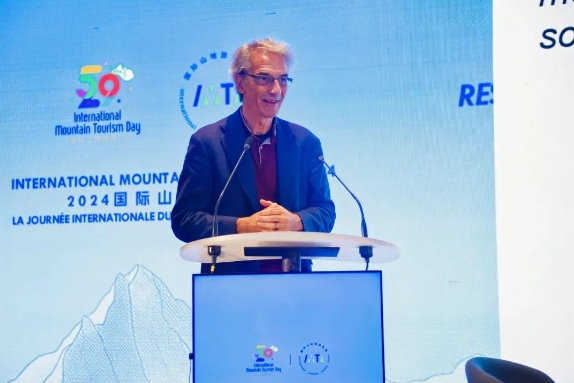
The following is the full text of the speech:
Most discussions about the impact of climate change on mountain tourism and the strategies to address it are about economic approaches (how to innovate businesses, support them, and save jobs) and technical methods (how to preserve resources or expand their usage). However, social apart from jobs and cultural consequences are rarely considered, which are actually vital to the life and environmental balance in the mountain areas. Let's adopt a broader perspective to offer some observations and insights.
Global warming is inevitable in the coming decades and cannot be reversed. Everyone is aware of how much impact and threat it has to the mountain tourism economy, so we must adapt to it. However, there are many ways to adapt: resist, accept, or accompany. Each has its own costs and benefits and will lead to different outcomes.
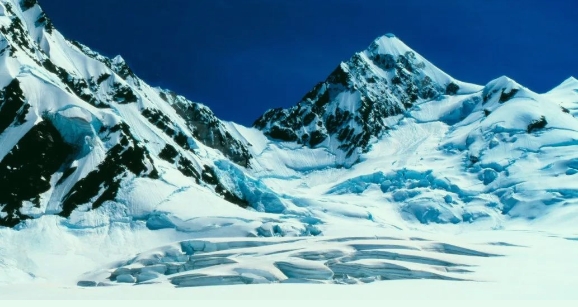
Mount Cook, New Zealand
Surface or 〝bubble〞 resistance are existing. Today's ski economy primarily relies on a few large resorts, and they are the least threatened by snow uncertainty. These resorts also heavily invested (because they have enough funds) to hire hands to control the snow conditions. Specifically, they are not alleviating the causes but the effects of global warming. They use surface methods that can be seen in advanced greenhouses and 〝bubbles" disconnected from the natural environment. After controlling avalanches and shaping the detailed terrain of ski areas and urbanizing zones, they apply intensive artificial snow production and optimize the 〝skiability" of the snow. Despite their strong denials, this approach is becoming increasingly similar to the existing artificial snow fields in Japan, the USA, and the Gulf countries, or the 〝tropical bubbles" within a two-hour drive of major European cities. If we try our best to promote this technical and economic model, we may achieve the goal of controlling environmental conditions through artificial means, suitable for companies concerned with uncertainty.
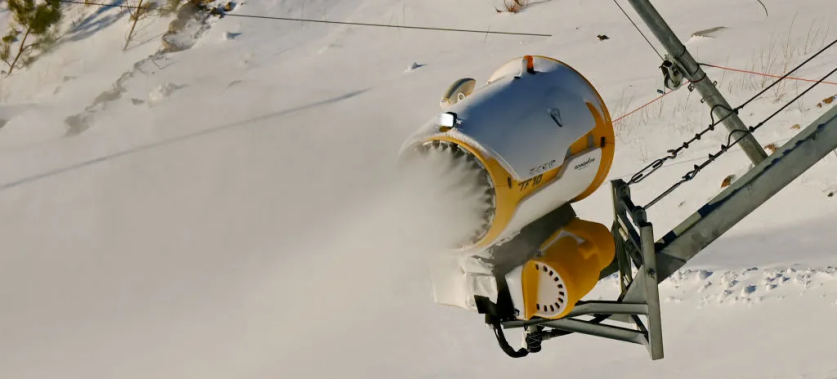
Ecological snowmaking equipment used in the 2022 Beijing Winter Olympics
But in the end, are we confident that these bubbles can withstand the dynamic forces of mountains and climates beyond the capabilities of engineers, technicians, and managers all over the world? After all, who will observe the anticipated snow after witnessing mountain collapses caused by permafrost melting, raging lava flows, and disrupted mountain river conditions? More importantly, are we fully aware of the costs of this model that operates on the surface of two main areas? First, what will the mountain experience be like in bubbles that are unaffected by disasters? Second, can local businesses instead of mere service providers survive or thrive?
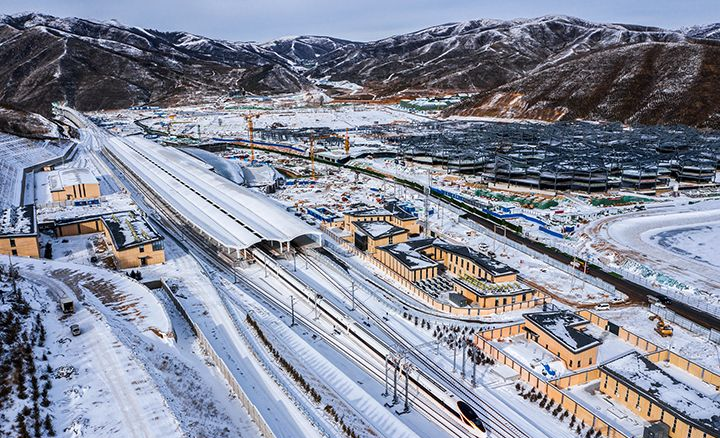
The Taizicheng High-speed Railway Station has brought Chongli into the 1.5-hour transportation circle of Beijing
Acceptance and reconstruction. While organized resistance to climate change might allow high-altitude bubbles to temporarily save their economic model through radical measures, it is quite different for small and medium-sized ski resorts. They have no choice but to resist such a "resistance" strategy. They also rely on snow resources and skiing activities, but they cannot depend on government subsidies and combat climate change through increased artificial measures. Another option is not giving up, because it is unhelpful and fatal and wouldn't lead to any collective projects. Instead, it is to embrace the new environment, rebuild, and mobilize the local community while reassessing their identity. This dual challenge curbs the effects of diversifying tourism products and promoting so-called soft tourism. The era of expert-led planning has passed, and we still struggle with economic models and public policies, let alone sharing them.
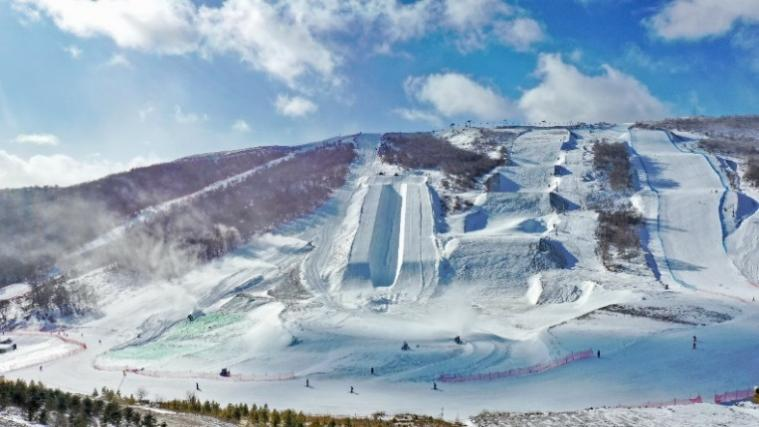
The competition venues for the 2022 Beijing Winter Olympics in Chongli
In this manner, the motivation for acceptance comes from three factors: freeing oneself from dependence on outdated models to think differently; leveraging the often-underestimated energy and creativity of individuals and local communities; and rethinking the connections among people, places, and activities, while providing new forms and locations for tourism and necessary resources and creativity. Such reconstruction can only occur after thoroughly assessing the new environment and envisioning the necessary elements to use existing factors and try out new ideas. What we discussed just now can be reinFor many towns near large cities, a realistic approach is to enhance residential appeal. In fact, the resources supporting rural tourism and small resorts are similar to those that attract new permanent or dual-residence inhabitants. If these people want to settle down, they are more likely than tourists to engage in the local economy and social life. Besides a favorable regional environment, this requires investment to ensure accessibility and connectivity, as well as being voluntary to stimulate social life.
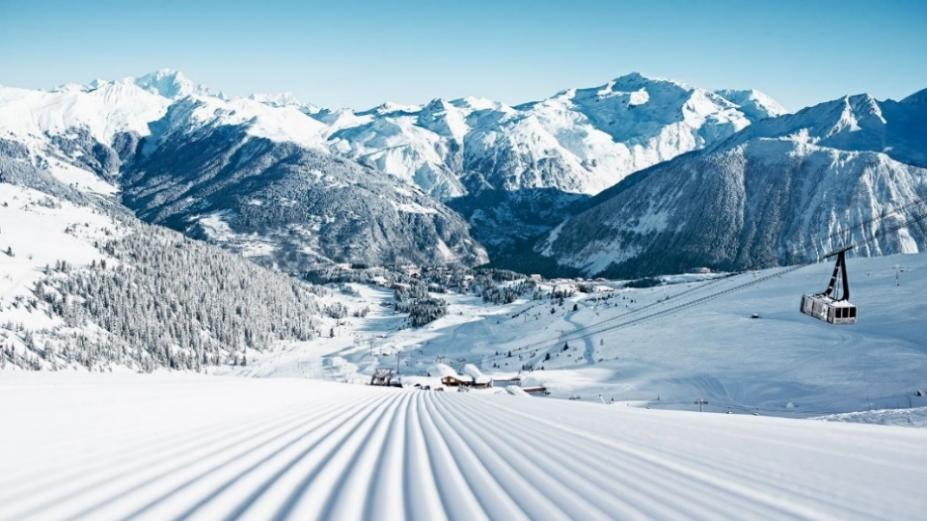
French Three Gorges Ski Resort
Terpreted through the lessons learned from the spatial and territorial issues during COVID-19. The disappearance of snow, and the invasion of a virus—the two things seem surprising yet somewhat similar. To deal with the pandemic, we summarized two strategies: first, restriction, isolation, and concealment to prevent threats; second, accepting the spread of the virus and adjusting our behaviors through personal responsibility and adaptability. The first is like the high-altitude resort resistance bubbles, while the second is like accepting inevitable changes, a method for vulnerable ski resorts. Moreover, the second strategy shows that remote work enabled people to adapt their living and working habits, a result favorable for small and medium-sized ski resorts. However, there is a difference in scale: COVID-19 lasted two years and everything quickly returned to normal; the “post-pandemic world” was not quite different from the pre-pandemic world. In the case of climate change, we are facing a lasting crisis. What we need is not short-term adjustment but a revolution, a reconstruction.
Text and photos source: IMTA
Editor Ⅰ: Zhang Wenwen
Editor Ⅱ: Wu Dan
Editor Ⅲ: Liu Guosong














